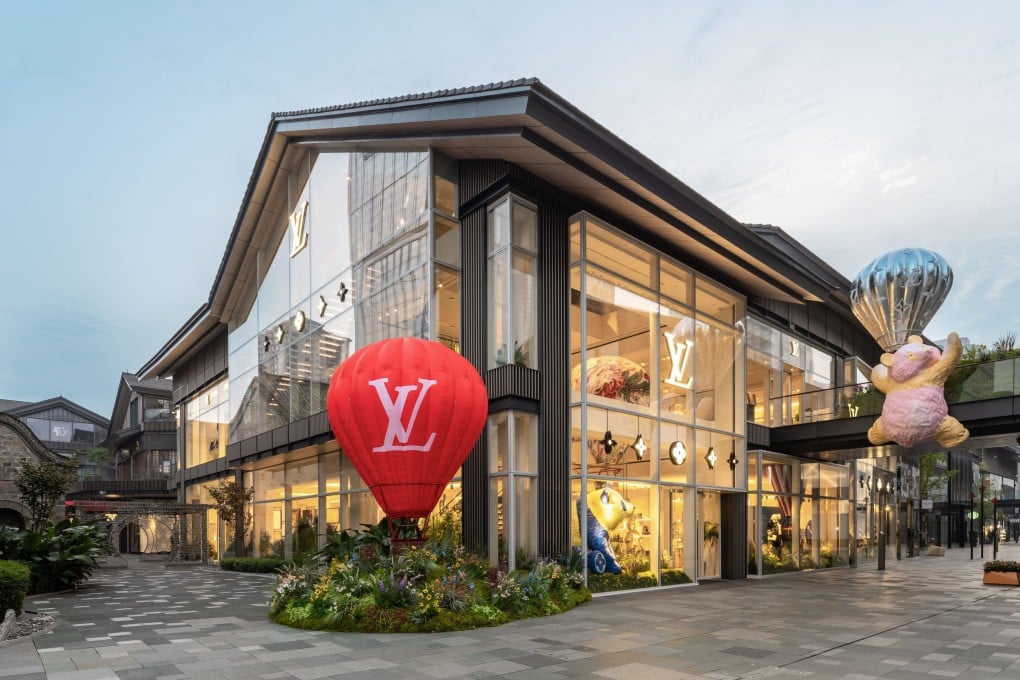Louis Vuitton debuts first China restaurant in Chengdu as luxury brands target spending power in lower-tier cities
- The brand’s fifth restaurant worldwide is in Sino-Ocean Taikoo Li, owned by Hong Kong-listed conglomerate Swire Properties
- Luxury brands are targeting so-called new first-tier cities, where housing prices aren’t as high and consumers have more disposable income, an analyst says

Luxury brands have notably ventured into what some refer to as “new first-tier cities” – a reference to prefecture-level cities with strong commercial activity.
Known for its laid-back culture and hotpot cuisine, Chengdu, the capital of Sichuan province, has a population of more than 21 million. It has emerged as a favourite spot for luxury brands thanks to the strong spending power of its residents. For example, Chengdu’s Gucci store, owned by luxury powerhouse Kering, was Gucci’s highest-revenue store worldwide in 2021, sources told trade journal Fashion Business Daily.

“The phenomenon of brands shifting attention to new first-tier cities has a lot to do with China’s direction of urban development,” Miro Li, the founder of Hong Kong and Shenzhen-based marketing consultancy Double V, told the South China Morning Post. “Housing prices aren’t as high and consumers have a lot more disposable income for luxury in these cities.”
Having a notable presence in Chengdu is meaningful for luxury’s expansion in China’s southwest region, and the area is also less competitive for luxury, she added.
